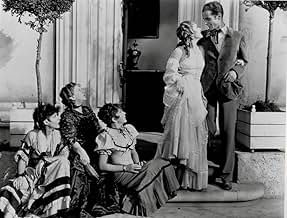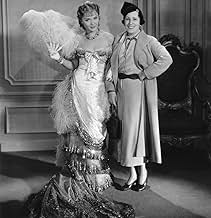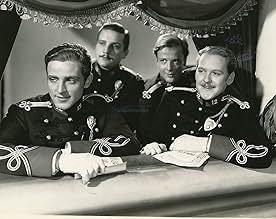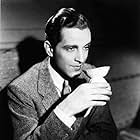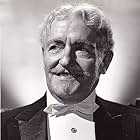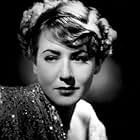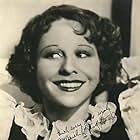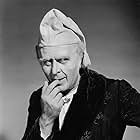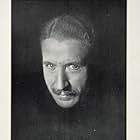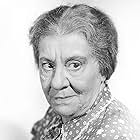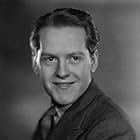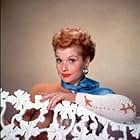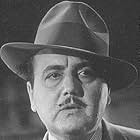Ukrainian-born Anna Sten was brought to Hollywood by Samuel Goldwyn to be the next Greta Garbo, but her career didn't quite pan out that way. I'd seen WE LIVE AGAIN (1934), an Anna Sten vehicle adapted from a Tolstoy epic, and I didn't care much for it. I hadn't heard great things about NANA (1934), Sten's Hollywood debut, and was hesitant to check it out. But NANA's not too bad and it's easy to see Anna Sten's appeal.
NANA is a period piece based on the novel by Emile Zola. Sten plays a Parisian streetwalker who is discovered by a theatrical impresario and becomes a stage success before falling in love with a soldier and running afoul of his protective older brother. Anna Sten does alright in the lead role. She's a beautiful girl, and her hard-boiled performance is much different than her turn in WE LIVE AGAIN. Part Garbo, part Marlene Dietrich, she even talk-sings through a stage number, smoking a cigarette.
Sten has a noticeable accent, like many other foreign imports, but her acting isn't as bad as some people say. Sten's character is a self-confident prostitute, at ease with her place in Paris society. It's a low-energy role. All she's really required to do is effortlessly seduce every man who looks at her, and she seems to pull it off. She's certainly very attractive. The scene where she teases her new admirers in her dressing room has a sexy edge. Perhaps Anna Sten came off as too much of a Dietrich/Garbo stand-in, without a style of her own.
Lionel Atwill plays his usual antagonistic aristocrat, though the forty-eight-year-old Atwill is improbably cast as the older brother to twenty-six-year-old Phillips Holmes, who plays the young soldier who falls in love with Sten. The cast also includes Jessie Ralph as Sten's personal maid, Richard Bennett as the great impresario, and Reginald Owen as his assistant. The film does suffer from a lack of star power, with no Fredric March or Gary Cooper to shoulder some of the weight. Anna Sten gets the spotlight to herself in what is meant to be a star-making role, but her name alone wouldn't be enough to draw an audience.
Mae Clarke, one of my favorite actresses from the 1930s, was a big reason I gave NANA a shot. She plays one of Sten's prostitute buddies (along with Muriel Kirkland). Clarke does a good job, but it's a minor role. Her performances in several early-1930s films are refreshingly naturalistic, but she was eventually reduced to often-uncredited bit parts. Viewers may know Mae Clarke from THE PUBLIC ENEMY (1931) or FRANKENSTEIN (1931), but I'd also recommend her work in WATERLOO BRIDGE (1931), THREE WISE GIRLS (1932), THE MAN WITH TWO FACES (1934), PENGUIN POOL MURDER (1932), and LADY KILLER (1933).
NANA was directed by Dorothy Arzner, the only female director working in Hollywood at the time. Set in 1860s Paris, it's a decent period piece. Good production values, nice costumes, and a tragic romance. Better than I expected, and a pretty good showcase for Goldwyn's exotic new discovery, Anna Sten. Unfortunately audiences in 1934 didn't take to NANA or Sten, and she never achieved stardom.

